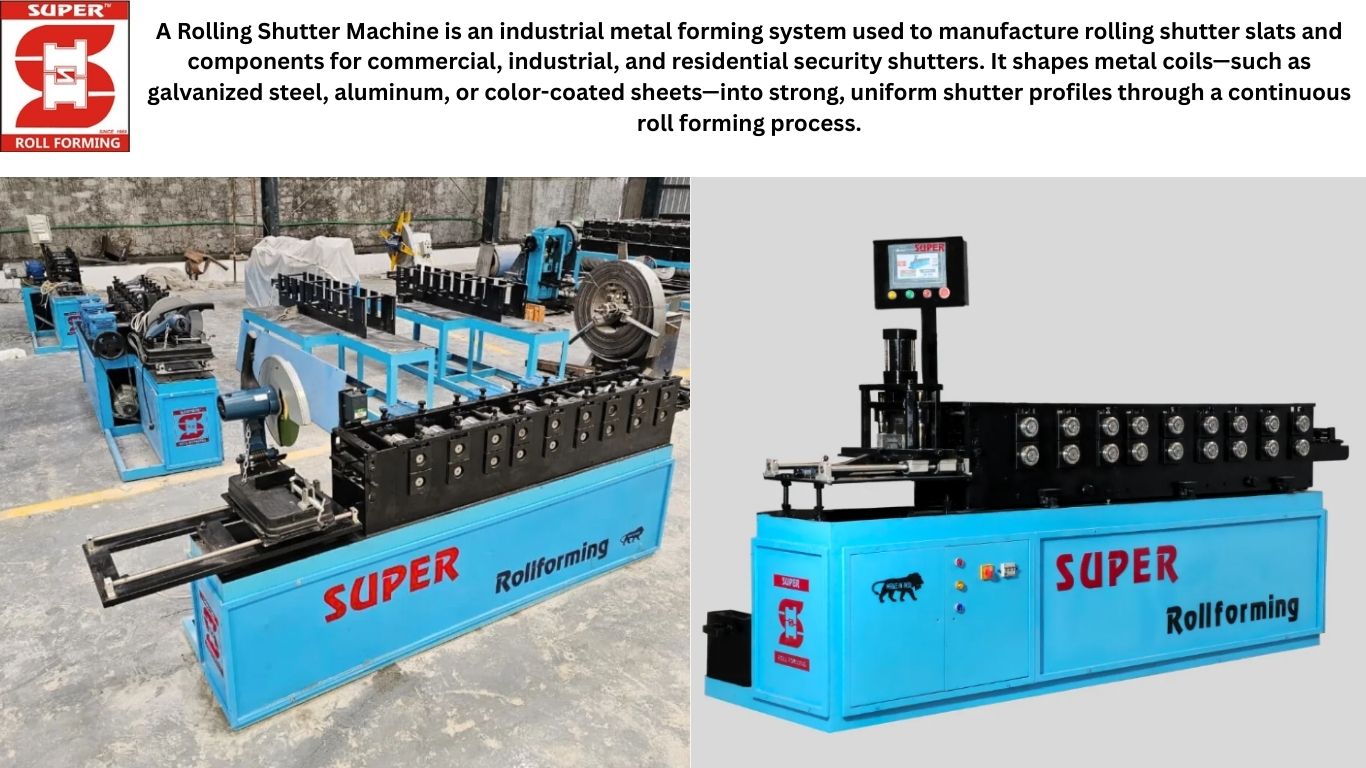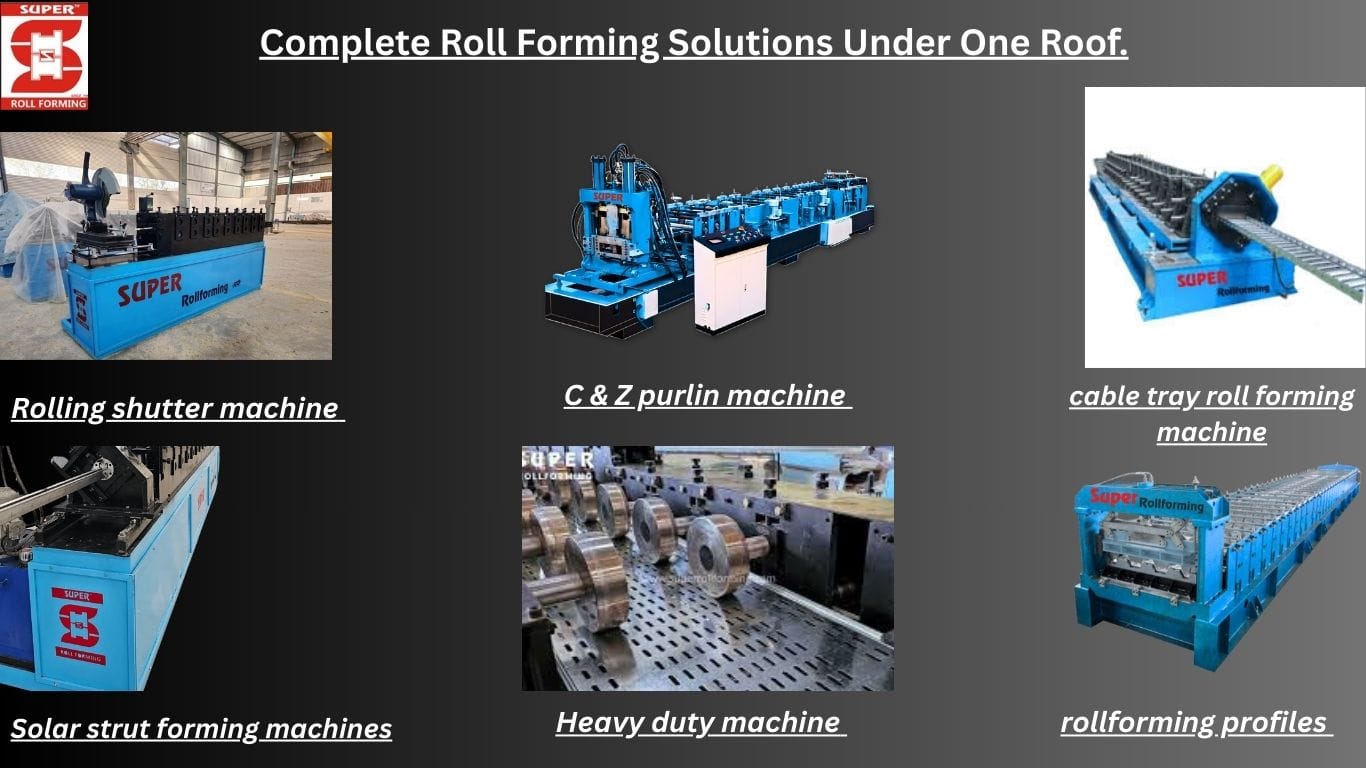Workshops and Certifications for Roll Forming Professionals
Roll forming is a specialized manufacturing process that transforms metal sheets into custom profiles. For professionals in this field, gaining practical skills and up-to-date industry knowledge is crucial. Workshops and certifications tailored to roll forming equip individuals with technical, operational, and managerial skills to advance their careers. This article highlights the best workshops and certifications available, exploring their benefits and how they contribute to career growth.
Why Certifications and Workshops Matter in Roll Forming
Certifications and workshops provide structured learning and skill development for roll forming professionals. The roll forming industry is continually evolving, incorporating advanced materials, digital technology, and precision engineering. Staying competitive requires ongoing education and skill enhancement, making workshops and certifications an invaluable resource.
Key Benefits of Certifications in Roll Forming
- Enhanced Technical Knowledge: Stay updated with evolving machinery and processes.
- Improved Job Performance: Certifications improve efficiency and safety in operations.
- Career Advancement: Recognized certifications can lead to promotions and higher pay.
- Networking Opportunities: Workshops bring together industry experts and peers for collaboration.
1. Top Workshops for Roll Forming Professionals
Workshops offer hands-on experience, addressing both theoretical and practical aspects of roll forming. Below are some industry-recognized workshops for those looking to boost their skill set.
A. Roll Forming Training Institute (RFTI) Workshop
The RFTI Workshop covers the fundamentals of roll forming, emphasizing best practices and common challenges. Participants get a chance to work on real machines, optimizing setups and troubleshooting in a guided environment.
- Topics Covered: Machine setup, material handling, maintenance techniques.
- Duration: 2–3 days, including practical training sessions.
- Ideal For: Beginners and intermediate-level professionals.
B. Fabricators & Manufacturers Association (FMA) Metal Forming Workshop
This workshop, hosted by FMA, offers comprehensive metal-forming training that includes roll forming. Attendees gain insights into new technologies and advanced roll forming processes.
- Topics Covered: Metal properties, forming processes, quality control, advanced tooling.
- Duration: 1-day intensive or multi-day sessions.
- Ideal For: Professionals seeking advanced training in metal forming.
C. Customized On-Site Roll Forming Workshops
For companies that want training tailored to their specific machinery and processes, customized on-site workshops are a great option. These sessions offer detailed guidance on machine optimization, production quality, and equipment-specific troubleshooting.
- Topics Covered: Custom machine setup, problem-solving, maximizing efficiency.
- Duration: Flexible, depending on company needs.
- Ideal For: Teams within organizations needing hands-on, specialized training.
2. Popular Certifications in Roll Forming
Certifications are designed to validate a professional’s expertise, knowledge, and skills in roll forming. Below are some highly regarded certifications that roll forming professionals can pursue to enhance their credibility.
A. Certified Roll Forming Technician (CRFT) by SME
The CRFT certification offered by the Society of Manufacturing Engineers (SME) provides comprehensive coverage of roll forming techniques, tooling, and operational best practices. Recognized globally, this certification sets the standard for competency in roll forming.
- Core Topics: Tooling fundamentals, machine operations, process improvement.
- Certification Exam: Consists of both theoretical and practical assessments.
- Ideal For: Professionals looking to validate their technical expertise.
B. Lean Six Sigma Green Belt for Manufacturing
Lean Six Sigma training provides roll forming professionals with critical process improvement skills. This certification focuses on enhancing quality and efficiency in manufacturing, crucial for those seeking to reduce waste and improve productivity in roll forming processes.
- Core Topics: Process optimization, quality control, lean principles.
- Certification Exam: Covers practical applications of Six Sigma in manufacturing.
- Ideal For: Managers, engineers, and technicians looking to optimize production.
C. American Society of Mechanical Engineers (ASME) Metal Forming Certification
ASME offers a certification that covers metal forming techniques, including roll forming. This certification is recognized as a standard of excellence for those in metal manufacturing, focusing on engineering principles, material science, and safety protocols.
- Core Topics: Engineering principles, metal properties, safety standards.
- Certification Exam: Practical exam followed by a theoretical assessment.
- Ideal For: Engineers and supervisors seeking to specialize in metal forming.
3. How to Choose the Right Workshop or Certification
When selecting a workshop or certification, it’s essential to consider career goals, current skill level, and industry requirements. Here’s a quick guide:
- Assess Career Objectives: Are you aiming for a technical role, a managerial position, or specialized expertise?
- Evaluate Skill Level: Beginners may benefit more from workshops, while advanced professionals might find certification programs more advantageous.
- Industry Requirements: Some certifications are highly recognized in specific industries; researching the industry standard can ensure the chosen path aligns with career advancement opportunities.
4. Enhancing Career Prospects with Advanced Certifications and Workshops
Roll forming professionals who invest in workshops and certifications often see a substantial impact on their career prospects. Certified professionals not only benefit from higher earning potential but also tend to be in demand for complex projects requiring specialized knowledge.
Advantages of Advanced Certifications in Career Growth
- Increased Employability: Certifications distinguish professionals in competitive job markets.
- Better Project Opportunities: Certified professionals are often chosen for high-profile projects.
- Industry Recognition: Certification from reputed institutions like SME or ASME boosts industry credibility.
5. Final Thoughts on Investing in Professional Development
Workshops and certifications are powerful tools for roll forming professionals aiming to expand their expertise and advance their careers. By choosing recognized programs and focusing on relevant skill-building, professionals can stay ahead in a competitive industry and enjoy a fulfilling career in roll forming.






